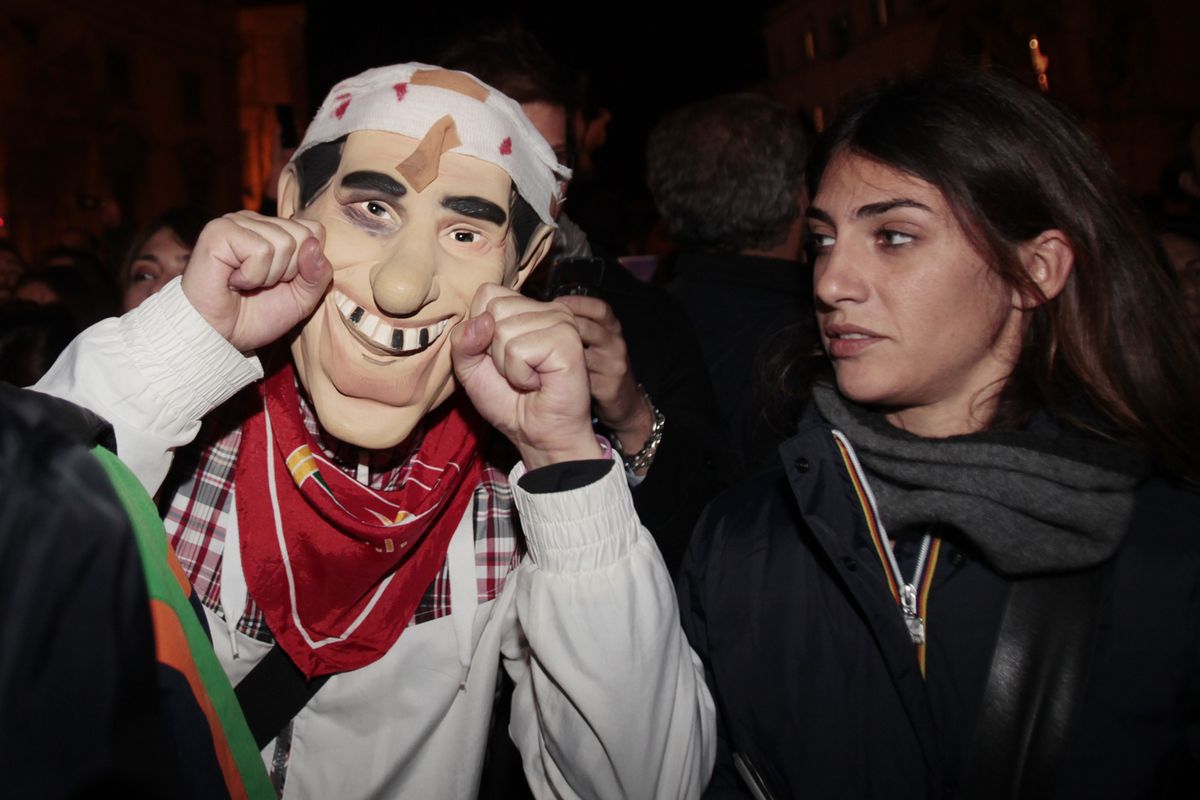Berlusconi out as Italy leader
Austerity measures loom as next battle

ROME – Europe’s economy toppled another leader Saturday night as Italian Prime Minister Silvio Berlusconi, beaten down by days of political turmoil and intense pressure from financial markets, resigned to catcalls and shouts of “Fool! Fool!”
It was an ignominious departure for the most flamboyant leader of the debt-staggered European Union, an in-your-face billionaire whose sex scandals and embarrassing gaffes had left his people fuming over being left the continent’s laughingstock.
Berlusconi’s resignation came in the same week that Greece’s prime minister, George Papandreou, relinquished his post to make way for a new coalition government headed by a technocratic economist. A similar path awaits Italy.
And at the end of this week, Spain’s ruling Socialist Party is likely to be routed in an election, which would bring to six the number of governments or leaders in Europe that have been brought down over the last 12 months by a debt crisis that has left some wondering if the eurozone can survive.
The economic domino effect may prove as profoundly transformational in Europe as the Middle East uprisings that have seen three entrenched leaders ousted and others facing once-unthinkable uprisings.
In Italy, many on Saturday night were celebrating what they saw as the end of an ignoble era in which the country has been taken to the brink of financial ruin. But only a week ago, few could have imagined such a quick departure for the 75-year-old Berlusconi, who over the last 17 years of dominating Italian politics had survived multiple allegations of corruption and sexual improprieties.
Yet not even the wily politician, a media tycoon nicknamed “the Knight,” could withstand an onslaught from financial markets that saw Berlusconi as a symbol of Italy’s severe debt troubles.
Berlusconi tried in a last-ditch maneuver Tuesday to salvage his political career, pledging to resign, but only after the deeply splintered Parliament passed a package of austerity measures sought by the European Union. The conditional promise was seen as a way to buy time, but when bond investors kept applying pressure on Italy by ratcheting up its borrowing costs, Italian lawmakers, including some of Berlusconi’s onetime supporters, moved quickly to ensure his departure before Monday’s financial markets opened.
Early Saturday evening, the lower house of Parliament overwhelmingly passed the austerity bill, a day after the upper chamber, the Senate, took similar action. The law directs the government to sell state-owned assets, cut red tape, liberalize labor laws and take other measures to reduce Italy’s $2.6 trillion debt and spur its stagnant economic growth.
Berlusconi’s resignation is expected to usher in a new Italian government led by Mario Monti, a former European commissioner who spearheaded an antitrust suit against Microsoft and is well-regarded by the financial establishment in the West.
But it remains to be seen whether Monti, an economist, can build the support needed in Italy’s Parliament to carry out austerity measures – including pension reform, labor law changes and cuts in public spending – that are highly unpopular with many in the country.
This austerity program “is a tough, tough path to take,” said Francesco Rutelli, a member of the center-left opposition Democratic Party. But he said there was no real choice. “We are convinced it was the only solution for the country.”
Berlusconi made no public statement, but insiders told Italian media that he was deeply hurt by the insults hurled at him by the public, even as the mood at many gathering places was festive.